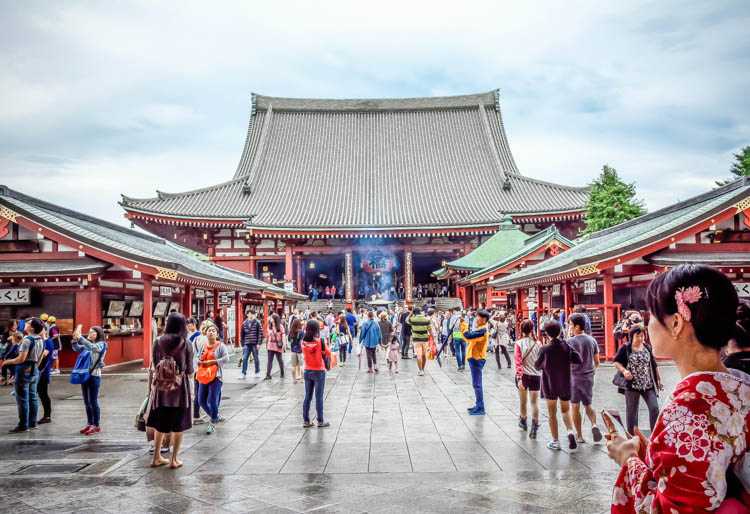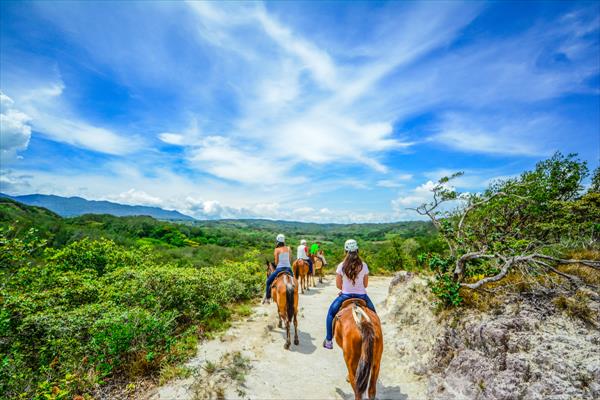Mass Tourism And How To Avoid It
Imagine you’ve been saving for your holiday all year, you’ve taken the leave off work, you’ve travelled hundreds of miles from home and when you finally arrive at your destination you come to realise that thousands of others have decided on the exact same location, at the exact same time. This can be defined as mass tourism and in recent years has become detrimental to local communities, small businesses and our environment.
What’s causing mass tourism is easy to pin point; the greater global prosperity, cheaper air travel and an increase in the provisions of hotels and tour companies synonymous with tour packages that include flights, full board meals with activities.
This change in tourism is often interlaced with the challenges we face worldwide; including globalisation, gentrification, increased rental prices, the growth in our middle-class societies and climate change. But not all countries have the resources, funding or willingness to adapt to these changes and act before it’s too late.
The pitfalls of mass tourism

According to the United Nations World Tourism Organisation, tourism is now the largest employer on the planet, that makes up one in every 11 people who rely on the industry for work.
Instead of this improving our global quality of life, tourism in some circumstances, is causing more harm than good. This all-inclusive style of travel often represents a new form of affordable travel where tourists "do" places, visiting as many places as possible in a photograph-and-leave style, while rarely getting the chance to stand in front of historically significant or environmentally breathtaking places in awe and wonder.
Recent images of an overcrowded Everest summit and continual pressures from residents in tourist heavy cities like Venice and Barcelona have come to represent many problems related to sustainability and local community dissatisfaction. Even though the reality is often more complicated, tourism often bears a lot of responsibility.

The disadvantages of tourism that can be linked to mass tourism can be defined as:
- The excess consumption of natural resources (such as water and food)
Scarce water and land resources result in the destruction of many destinations’ landscapes and attractions, both natural and cultural, on which they depend. - Globalisation
As a global community, we are connected through technology more than ever before. With that, we are more exposed to new destinations opting to visit the continuum of places to those within our own communities. - Increased competition and price comparison engines
Accelerating the downward pressure on prices and yields. Residents of tourism hotspots soon realise that cheap travel doesn’t necessarily equate to a reduction in cost. - Gentrification of neighbourhoods
Neighbourhoods that were traditionally populated by the working class are progressively being dismissed to make way for more restaurants, hotels and foreign made souvenirs.
How to counter mass tourism?

This doesn’t mean we should avoid travel all together. There are of course benefits to tourism including: increased employment, improvement in infrastructure to accommodate the influx of visitors (including roads, rail, electricity services and quality of water) as well as more exposure to local customs, by the way of art, craft and culinary skills and let’s not forget that foreigners can add value to the places they visit too. By connecting with like-minded people; they can bring diversity, perspectives or a new exchange of ideas.
In doing so, we should strive to make better informed decisions when it comes to selecting our holiday destinations and the activities we opt to do while abroad.
Selecting an agent who can guarantee that their product is in accordance with eco-tourism guidelines is a much more affective approach to help avoid contributing to mass tourism. Things to seek when avoiding mass tourism:

- Avoid ‘hop on, hop off’ tours, why not try a walking holiday away from the crowds like the Morocco walking and wellness tour or for the Yucatan By Bike.
- Seek private or small group tour, these are sure to be less of an impact environmentally. Look for our "Private only" or "Small group" badged trips - you will find them in every destination we offer.
- Explore destinations that aren’t necessarily the ‘it’ destinations. Get off the beaten track to discover more than imaginable like the 6 day Mikumi, Ruah and Udzungwa Safari.
- Opt for bespoke itineraries that include connecting with the local communities you’re visiting like the Mentawai Tribe Tour or Hanoi Rice Farming Tour.
What is needed most in reducing tourism on mass is putting more effort into developing the way we travel in a more conscious manner. Imagining a better alternative for local communities and the environment.
As a more responsible traveller, our conscious alternatives are about; less volume, congestion, over consumption and harm and about more purpose, value and connection. In short, quality not quantity.
Lexi is your ultimate wanderlust enthusiast with an incurable case of curiosity and a deep passion for action on climate change. You can read more of her work www.avaycay.com. Find her on Facebook or Instagram @avaycay.











